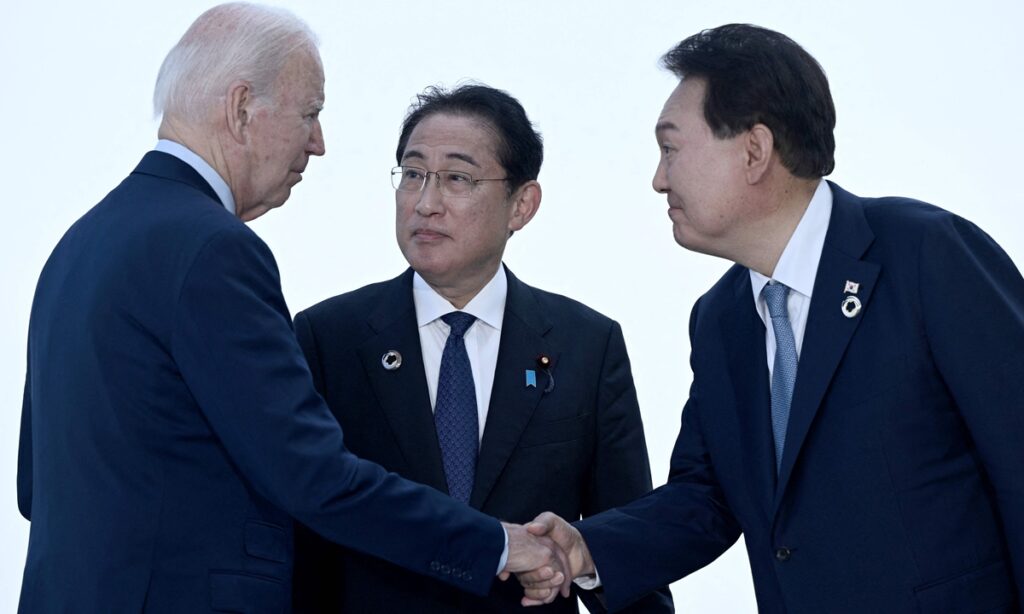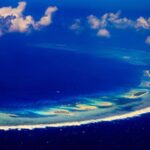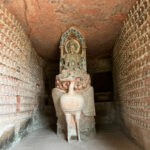The leaders of the US, Japan and South Korea are set to meet at Camp David, Maryland on Friday to upgrade “cooperation,” a move criticized by observers as being a starting shot for a cold war, and experts warned that the summit would bring more regional risks.
It has been reported that the summit at Camp David is scheduled to adopt two documents, tentatively titled the “Camp David Principles” and the “Spirit of Camp David.” The first will contain guidelines for trilateral cooperation and the other will outline their vision for cooperation and its implementation plan, Yonhap News Agency reported on Thursday.
The Asia-Pacific region is a highland of peace and development, and a land of cooperation that must not become an arena for geopolitical games again, Chinese Foreign Ministry spokesperson Wang Wenbin said on Friday, commenting on the US-South Korea-Japan summit at Camp David, and urged all parties to uphold true multilateralism amid a complex international security situation.
“Who is creating conflicts and intensifying tensions? The international community has its own consensus,” said Wang. The attempts to form exclusive small cliques and groups and bring camp confrontation and military blocs into the Asia-Pacific region is unpopular and will prompt caution and opposition from the countries in the region, Wang noted.
The security of one country should not come at the expense of that of any other or of regional peace and stability, said Wang.
US President Joe Biden invited the leaders of Japan and South Korea to attend the Camp David summit on Friday. However, the atmosphere of a cold war has spread before the summit even started. “It is appropriate to say that the Camp David summit is possibly a starting shot for a new cold war,” Lü Chao, an expert on Korean Peninsula issues with the Liaoning Academy of Social Sciences, told the Global Times on Friday.
As for Japan and South Korea, we hope that we can co-develop and co-exist peacefully as neighbors. Meanwhile, sincere economic cooperation among the three countries could be a boon to the entire world economy, Lü said. “The summit is clearly a US-led effort to tie Japan and South Korea to its chariot, especially as pawns, in pursuit of a new-generation US strategy,” Lü noted.
This is the first time in history that the US, Japan and South Korea have held a trilateral summit on an occasion other than an international conference, and also the first time that Biden has hosted foreign leaders at Camp David since taking office in 2021, according to media reports.
However, it will not be easy to tie the three countries’ interests together. For instance, South Korea believes that the Korean Peninsula issue is a top priority, but the US and Japan obviously do not concern themselves with this, and their focus is more on China or other issues serving the US’ global strategy. In this regard, the US, Japan and South Korea have certain differences, according to Lü.
Also, discussions on science, tech, industrial chain and other fields at the summit will have a more far-reaching negative impact on the South Korean economy. If the three countries engage in so-called joint advance and retreat, especially in the field of science and technology, the extent of the losses suffered by each country will be different. However, South Korea’s losses are likely to be the biggest, and this is something its government has to consider, said Lü.
“The Camp David summit may not be a good thing for South Korea or Japan, in terms of military, security and economic cooperation,” noted Lü.
(Global Times)




